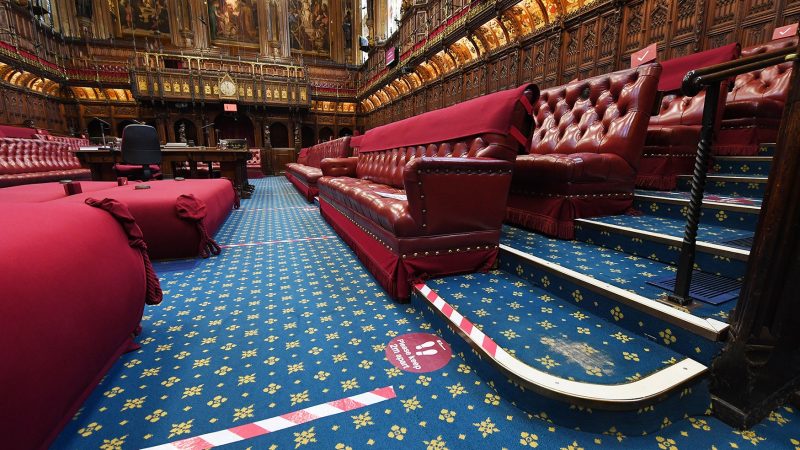
The Electoral Reform Society has declared that the granting of a peerage to Evgeny Lebedev shows that the House of Lords is “corrupt with cronyism” after reports that Boris Johnson pushed ahead with the nomination despite security concerns.
The Times reported on Saturday that intelligence officials withdrew an assessment, which concluded that handing the son of an ex-KGB agent and media mogul a peerage posed a national security risk, after the Prime Minister intervened.
“A peerage is not just an exclusive title or award – unelected peers hold a powerful role in our politics and are given a job for life to make our laws. A seat in the Lords is a lifetime appointment at the heart of Westminster,” Electoral Reform Society chief executive Darren Hughes said this morning.
“This is not the first time Johnson has ignored official advice when stuffing the Lords with political allies and party donors – but shows once again the power of the Prime Minister of the day to hand out seats in our unelected Lords with few limits or restrictions.”
Johnson was accused of cronyism after awarding a peerage to former Conservative Party co-treasurer, businessman and Tory donor Peter Cruddas, against the advice of the Lords appointments commission, at the height of the pandemic.
Hughes added: “Until we have a fully elected revising chamber in Westminster, one where the people, not the politicians, get to choose who goes in and who comes out, peerages will continue to be handed out like awards for loyalty or to those with the deepest pockets at the whim of the Prime Minister of the day.”
Keir Starmer said on Sunday that he is “very concerned” about the reported intervention “because it goes to the heart of national security”. The Labour leader said the case should be referred to the intelligence and security committee.
Yvette Cooper has written to the Prime Minister, calling on him to make all the advice and information given to him on the matter available to the committee and that he disclose in full what role he played in Lebedev’s ennoblement.
“The government has rightly taken action to introduce sanctions on Russian oligarchs and banks, and to introduce a register of overseas entities and reforms to unexplained wealth orders,” the Shadow Home Secretary wrote.
“However, where there are allegations about the government’s response to national security concerns linked to Russia, it is important that these can be investigated.”
The Lords appointments commission wrote to the Prime Minister in March 2020 advising against the ennoblement of Lebedev. Johnson is said to have responded to the concerns raised by peers and security officials as “anti-Russianism”.
Lebedev owns the Evening Standard and The Independent. He derives his wealth from his father Alexander, a billionaire oligarch. Lebedev has previously been described as a critic of Vladamir Putin but is thought to have retained ties with the Kremlin.
The appointments commission advice against the appointment was based on MI5 and MI6 intelligence, provided to the commission by Cabinet Office security officials. Downing Street refused to reconsider the nomination.
Two days after the appointments commission sent its initial letter of concern to the Prime Minister, on 19 March, Johnson met Lebedev at his home. Downing Street will not say what was discussed. Both Downing Street and Lebedev have highlighted his charitable and business activities as reasons for the peerage.
Commenting on the alleged intervention on Saturday, Angela Rayner said the Prime Minister had “once again put personal interest before the public’s” but stressed that this time Johnson had “risked national security”.
“It is clear that Boris Johnson has never been serious about taking the tough measures needed to eradicate Putin’s influence in Britain, and his friendships raise questions about his failure to act,” the deputy Labour leader added.
“There must be an urgent investigation into how the Prime Minister was able to ignore security reports, including what requests were made of the intelligence services to overturn their decision, and whether parliamentary bodies were consulted.”




More from LabourList
LGBT+ Labour suspends AGM amid fears of legal action over trans candidates running for women’s roles
‘Hyperlocal messaging can help Labour win elections: Here’s how’
Unite votes to re-examine relationship with Labour and suspend Angela Rayner